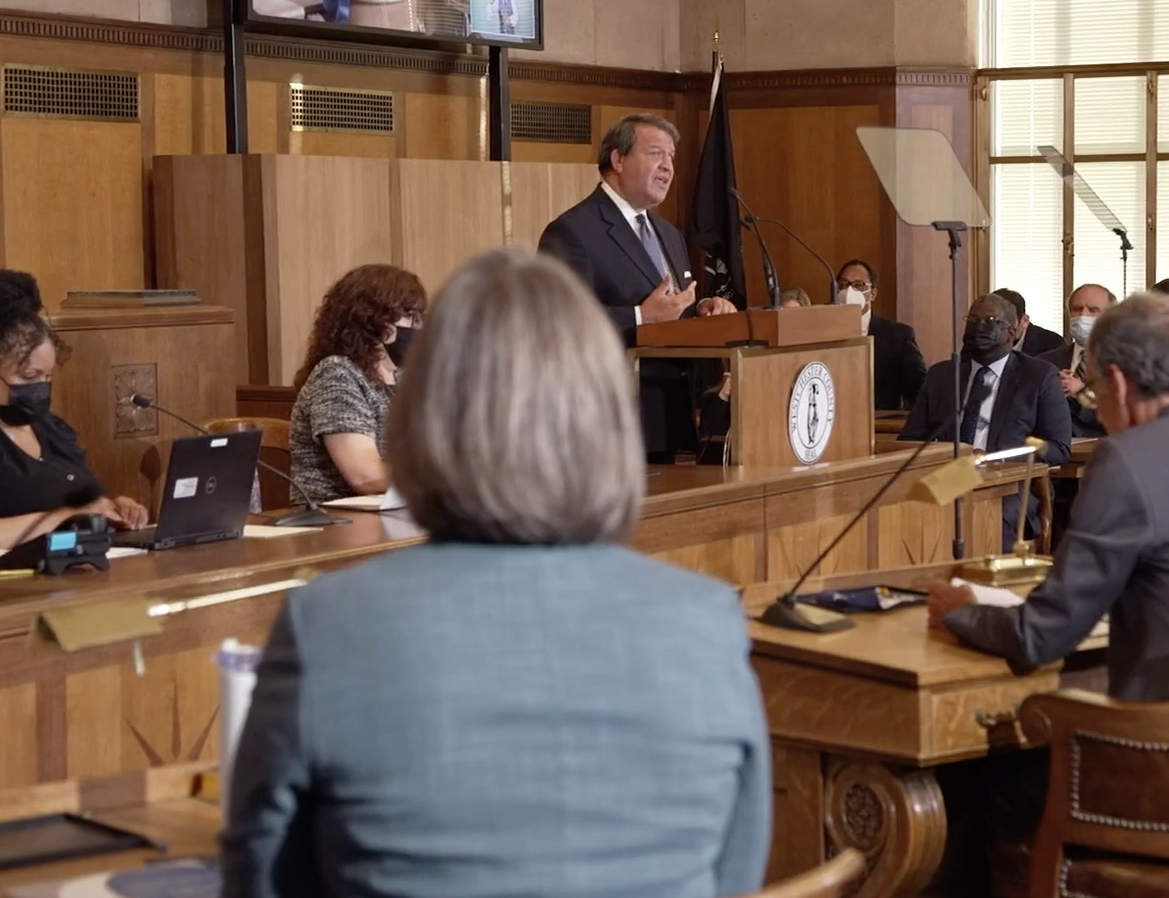The Connecticut House of Representatives has overwhelmingly approved an agreement that the state had reached with its two Native American tribes in the latest step toward the legalization of sports and online gambling.
 However, HB 6451 ”“ which passed by a 122 to 21 majority ”“ could also throw fantasy sports for a loss.
However, HB 6451 ”“ which passed by a 122 to 21 majority ”“ could also throw fantasy sports for a loss.
The agreement requires Gov. Ned Lamont to amend the state”™s gaming compacts with the Mashantucket Pequot and Mohegan tribes to permit them to offer sports betting, online gambling and online fantasy gaming.
For internet gambling, the state will receive tax revenues of 18% for the first five years, followed by 20% for the following five years. An option for an additional five years is also included.
For sports wagering and fantasy betting, the tax rate is 13.75%.
The agreement also allows the Connecticut Lottery Corp. to also offer online sports wagering and retail sports betting at 15 locations, including one in Bridgeport.
The bill next goes to the Senate and to Lamont, both of whom are expected to approve it, after which it will require federal approval from the U.S. Department of the Interior.
The hope is that all approvals will be in place in time for the next NFL season, which is scheduled to begin on Sept. 9.
Lamont said the legislation “will bring Connecticut”™s gaming, lottery, and sports betting market into the future, positioning our state as a leader.”
Rodney Butler, chairman of the Mashantucket Pequot tribe, which operates the Foxwoods resort and casino, said: “For our tribe, gaming is about much more than business — it is a means by which we rebuild our nation, educate our children, and take care of our elders. Passage of this legislation will enable us to do just that, and more, for generations to come.”
James Gessner Jr., chairman of the Mohegan Tribal Council, which operates the Mohegan Sun casino, said the legislation “will have a statewide impact as Connecticut works to meet critical needs as it recovers from the pandemic.”
Sportech, the state-licensed parimutuel operator that has lobbied hard to play a major role in iGaming and an increased presence in sports wagering ”“ it operates the Bobby V”™s in Stamford, among other venues ”“ took a decidedly darker view of the agreement.
“Prohibiting Sportech, the licensed OTB betting operator in Connecticut for nearly 30 years, from expanded betting and gaming opportunities while granting exclusive rights to the tribes, we believe, would subject the bill to strict scrutiny under constitutional challenge, ultimately leading to the unravelling of this expanded gaming initiative within Connecticut,” said Sportech CEO Richard McGuire.
“It has been noted that the introduction of iGaming alone could be worth over $2 billion to the tribes,” he continued. “That”™s over $600 for every man, woman and child in the state. Granting exclusive gaming rights and sports betting to the tribes, and deliberately excluding the only business currently approved to take bets, is clearly prejudicial on a significant scale.”
The company, which has threatened legal action in the past over the situation, believes that “if it is forced to challenge the bill to protect its employees and investments in the state, courts will hold that this bill violates the equal protection clauses of the United States and Connecticut Constitutions, and the emoluments clause of the State Constitution,” McGuire said.
The Fantasy Sports & Gaming Association (FSGA), whose members include DraftKings and FanDuel, issued a statement declaring that the legislation “could result in the shutdown of paid fantasy sports in Connecticut for a significant period of time, possibly through the NFL season,” due partly to a lack of clarity surrounding the application process.
“On behalf of all fantasy sports players in the state, the Fantasy Sports & Gaming Association strongly urges the General Assembly to make the necessary changes to the legislation to ensure Connecticut residents can continue to participate in the fantasy sports contests they know and love,” the group said.



















